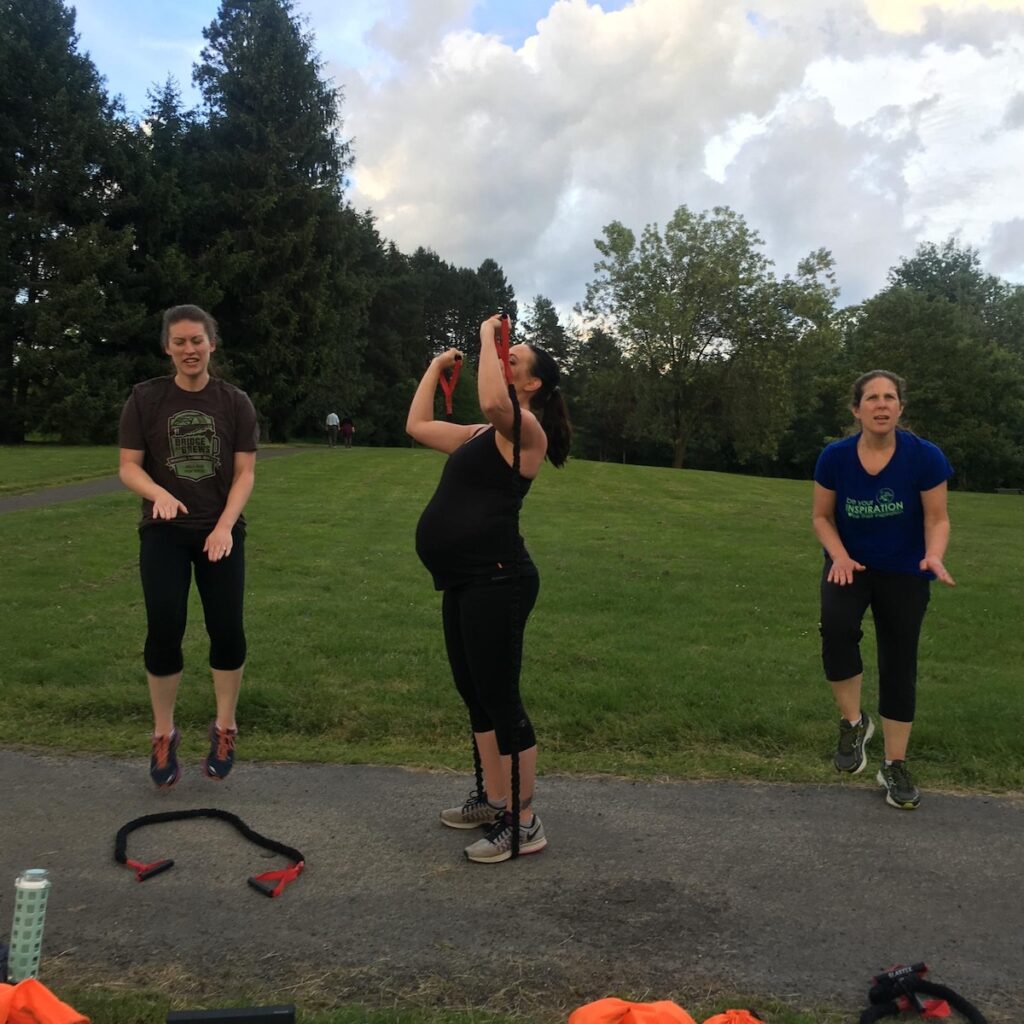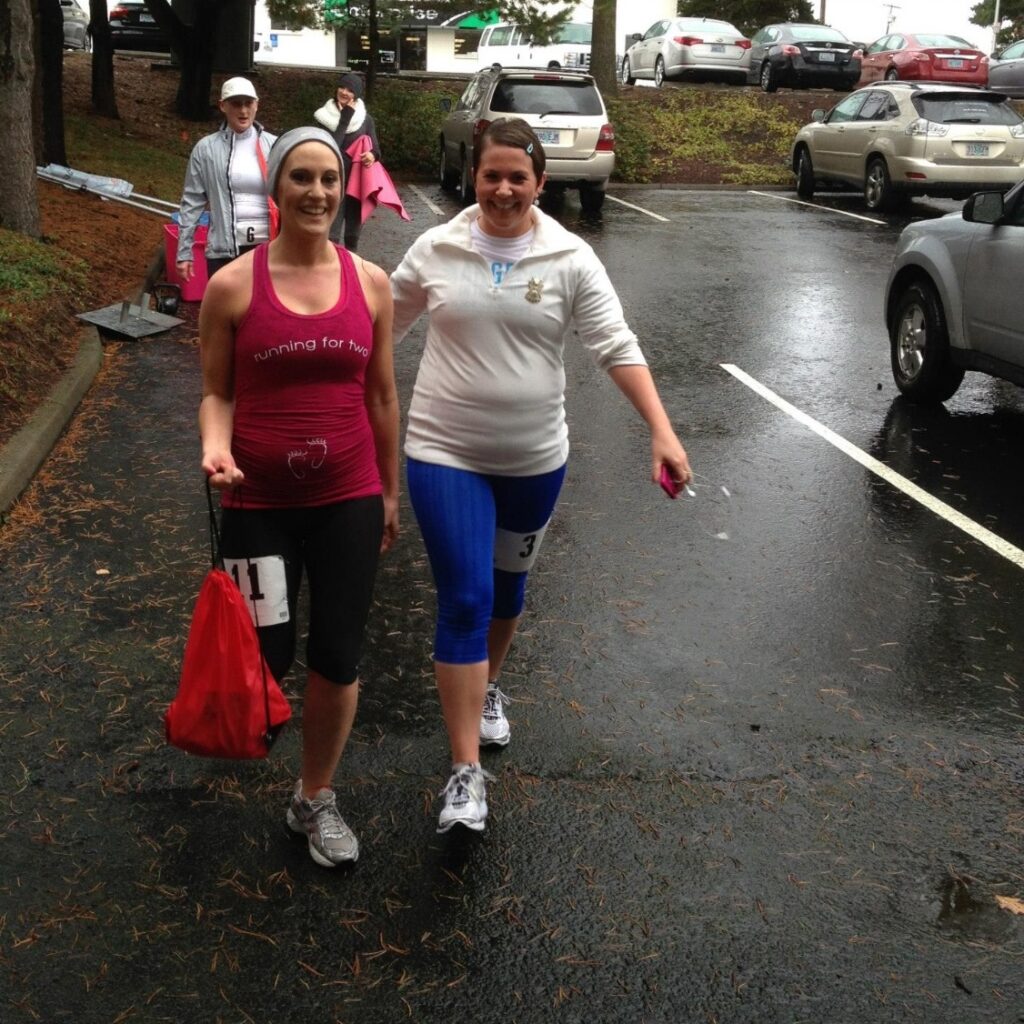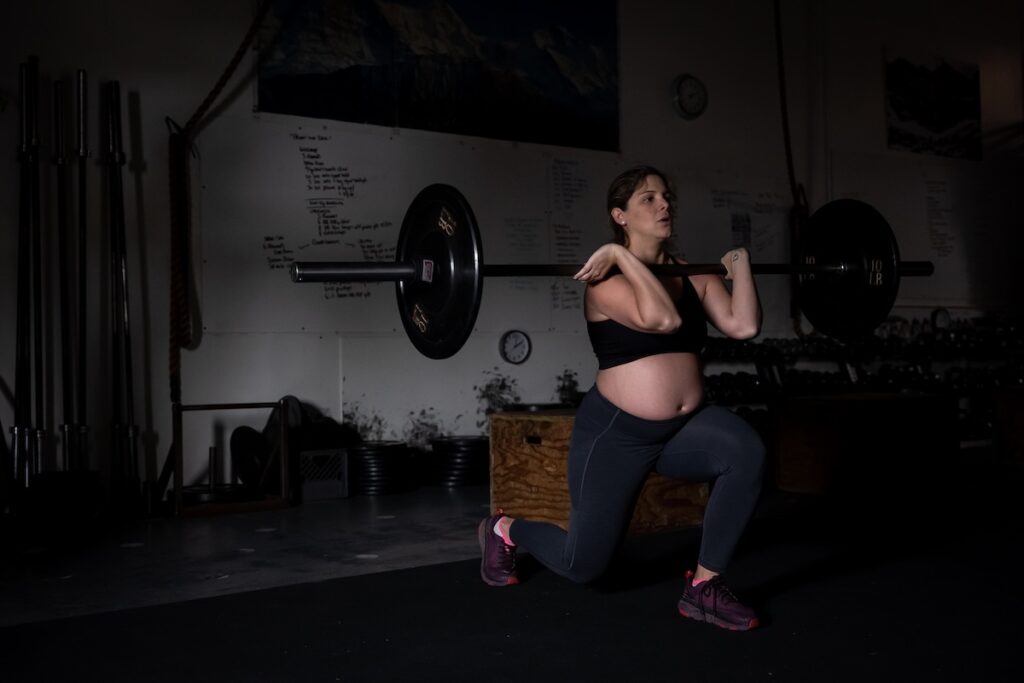Pregnancy doesn’t end your training. Learn how physiology changes during pregnancy and how athletes can adapt intensity, strength work, and recovery safely.
I remember the moment I saw the positive pregnancy test with my first pregnancy. I was excited, nervous, and everything all at once. A million thoughts and questions rushed through my head. As a lifelong athlete, one of my first fears was that I would no longer be able to work out. Unfortunately, at that time (only 11 years ago), my doctor advised me not to elevate my heart rate at all, despite my pregnancy being healthy and uncomplicated. I listened.
What followed was declining mental health, physical discomfort, and a growing loss of identity. Eventually, I gave birth to my first baby. That experience is what pushed me to lean aggressively into my fitness coaching career with a focus on pregnant and postpartum athletes because I didn’t want anyone else to believe they had to stop training simply because they were pregnant.
By my second pregnancy, I had been coaching pregnant athletes for years and had a healthcare provider who was far more up to date on the science. Again, with a healthy pregnancy, I trained safely all the way up to the day I gave birth. So no, pregnancy does not halt your athletic journey. But it does change it.
Pregnancy is a massive life event. We go through enormous physical, hormonal, and emotional changes. For many athletes, staying active is not just about fitness, it’s tied to identity, mental health, and emotional regulation. Abruptly stopping movement can contribute to emotional distress, loss of self, and physical consequences such as loss of muscle mass, neuromuscular coordination, and aerobic fitness (ACOG, 2020; Davenport et al., 2018). In a healthy pregnancy, understanding how to train is both important and empowering.
First and foremost: always obtain clearance from your healthcare provider before participating in physical activity during pregnancy (ACOG, 2020).


Now, let’s talk about what actually changes physiologically.
During pregnancy, blood volume increases by roughly 40–50% to support the growing fetus. Cardiac output also increases significantly to meet the metabolic demands of pregnancy (Clapp & Capeless, 1997; Melzer et al., 2010). Hormonal shifts are substantial, including increases in progesterone, cortisol, and the presence of Relaxin. Musculo skeletally, your center of mass shifts, body size changes, and movement patterns adapt to accommodate a growing abdomen.
That may sound overwhelming but let’s break it down in a way that actually helps guide training:
As plasma volume expands, heart rate responses change. This means heart-rate–based training zones become unreliable during pregnancy. Aerobic training remains foundational, but instead of relying on numbers, this is the time to lean into rate of perceived exertion, breathing cues, and the talk test (Mottola et al., 2018; ACOG, 2020). Moderate aerobic work is still very much “in,” but it should feel controlled and sustainable.
Increased ventilation, hormonal effects, and mechanical changes to the diaphragm mean you’ll feel breathless sooner at workloads that once felt easy (Davenport et al., 2018). This is not a loss of fitness; it’s a normal physiological adaptation to pregnancy. For this reason, sustained high-intensity efforts or hard interval sessions are generally less appropriate during this time.
Hormones deserve their own conversation.
Progesterone rises throughout pregnancy and is a major driver of increased resting heart rate, ventilation, and body temperature (Melzer et al., 2010). What does this mean for training? Listen to your body. If you’re overheating or feeling overwhelmed, slow down. Training will feel harder and that is expected. It is not a reflection of fitness, toughness, or capability.
Cortisol also increases as part of normal pregnancy adaptation, and insulin sensitivity decreases as pregnancy progresses (Butte, 2000). This makes fueling and recovery especially important. Athletes should prioritize adequate energy intake, avoid training into deep fatigue, and allow sufficient recovery time between sessions.
And then there’s Relaxin. Relaxin increases connective tissue compliance, particularly in the pelvis, but its effects are systemic (Schauberger et al., 1996). This means joints may be more vulnerable under high-velocity, unstable, or end-range loading. This does not mean movement is dangerous, it means movement should be controlled. Strength training becomes especially important here, as it helps maintain joint stability and neuromuscular control (Mottola et al., 2018).
So, let’s simplify what this means for training:
- Heart-rate–based zones are out; perceived exertion and breathing cues are in
- Sustained high-intensity output is out; controlled aerobic work is in
- Pushing through discomfort is out; listening to your body is in
- Being hard on yourself is out; giving yourself grace is in
- Training to exhaustion is out; fueling and recovering well is in
- High-impact and fast, uncontrolled movements are out; strength training is always in
This is not a list of things you cannot do. It’s a list of things that will look different for a relatively short period of time, roughly ten months.
Strength training is always important, but pregnancy is a particularly critical time to prioritize it. However, it’s essential that strength work be appropriate for a changing body. This is not the time for six-pack abs or vanity core training. Your abdominal wall is lengthening and adapting, and poorly managed loading can increase strain. We want to avoid movements that create excessive or poorly controlled intra-abdominal pressure, particularly with breath holding or visible abdominal doming (Benjamin et al., 2014).
Movements to avoid include:
- Traditional planks or aggressive bracing strategies
- Exercises where both feet and head are off the ground simultaneously
- Crunches, sit-ups, or similar flexion-dominant core work
- Prolonged supine positioning after the first trimester, which can reduce venous return and cardiac output due to vena cava compression (ACOG, 2020)
- Prone positioning as pregnancy progresses, primarily due to discomfort and impracticality
So, what should we do?
Core training during pregnancy should prepare the body for postpartum recovery and daily function. Effective options include side planks (modified as needed), bird dogs, and glute bridges with good breath control (Davenport et al., 2018).
Posterior-chain strength becomes especially important as mass increases anteriorly and posture adapts. Exercises like deadlifts, bent-over rows, and reverse lunges help support posture, reduce back strain, and maintain movement efficiency.
As pregnancy progresses, both aerobic and strength movements may feel more challenging. Modifications, such as using elevated surfaces, walls, or external support can make training safer and more comfortable. A pelvic support band can also be helpful, particularly for aerobic exercise, by reducing pelvic pressure and improving comfort (ACOG, 2020).
Finally, we cannot talk about training during pregnancy without addressing the psychological component.
For many athletes, this is the hardest part. Your body will feel different. It will respond differently. That is normal. It is expected. And it is temporary. Pregnancy itself is a prolonged athletic event and one that deserves respect, patience, and self-compassion. Be kind to yourself. Acknowledge what your body is doing. Give yourself credit.

